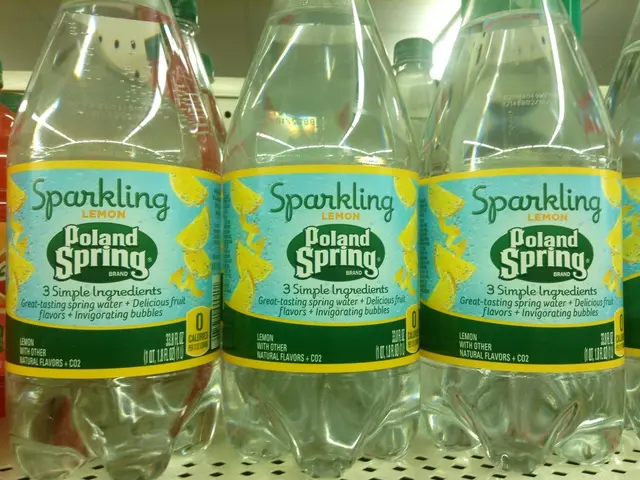Alarming Rice Health Risk: Heavy Metals galore
Store-bought rice unveiled with high arsenic and lead content in recent study
A startling study of over 200 different rice samples revealed that a multitude of rice varieties, including popular brands, are loaded with significant amounts of heavy metals, such as arsenic, lead, and mercury. These toxins can lead to a plethora of health issues, from developmental delays to liver and kidney disease, and even cancer.
But fear not! Here's some actionable advice to help you make safer choices.
Rice's Heavy Metal Problem Explained
Rice is a champion absorber of heavy metals, due to its unique physiology and the conditions under which it grows. According to Tasha Stoiber, Ph.D., senior scientist at the Environmental Working Group (EWG), rice takes in up to 10 times more arsenic than other grain crops, increasing your potential exposure. The exact amount a rice plant absorbs depends on the soil quality and where it's grown.
The Toxic Crew: Heavy Metals and Their Health Impacts
These heavy metals find their way into plants as they grow, and long-term exposure can lead to a long list of health concerns.
Arsenic
Arsenic, a colorless, odorless, and flavorless metal, can disrupt your endocrine system and is linked to type 2 diabetes, skin, lung, bladder, kidney, and liver cancer.
Cadmium
Cadmium is associated with a host of cancers (e.g., breast, lung, prostate, nasopharynx, pancreas, and kidney), as well as osteoporosis and liver and kidney damage.
Lead
Lead is detrimental to childhood development, causing lowered IQ and learning difficulties. In adults, it can lead to cardiovascular issues, nerve disorders, and memory problems.
Mercury
Exposure to mercury can affect the nervous system and, if ingested by pregnant women, can impact their baby's cognitive development, including thinking, memory, and language skills.
Limit Your Exposure to Rice-Friendly Tips
To reduce your risk of exposure to these heavy metals in rice, try these strategies:
Experiment with Other Grains
Instead of rice, consider grain options like barley or quinoa, which have, on average, 69% lower heavy metal levels. Mixing these grains into your dishes can help reduce overall exposure.
Say "No" to Precooked Rice and Higher-Level Rice Varieties
Avoid precooked rice varieties, which often contain higher levels of toxic types of arsenic. Also, be wary of popular rice types like brown rice, arborio rice (risotto) from Italy, and white rice from the Southeast U.S.
Choose Lower-Metal Rice Types
opt for rice types that have proven to be lower in heavy metals, such as California and Thailand-grown jasmine rice, or Basmati rice from India.
Cook Rice Like Pasta
Cooking rice in an excess of water and draining it can help lower arsenic and other heavy metal levels by 30% to 70%. Rinsing and soaking rice can also help reduce heavy metal concentrations.
Skip Processed Foods with Rice
Rice cakes, snacks, and foods with brown rice syrup may contain high levels of arsenic and cannot be easily rinsed or diluted.
Advocate for Heavy Metal Limits in Rice
Push for legislation to set heavy metal limits like the 100 ppb limit for arsenic in rice cereal. Encourage manufacturers and growers to adopt practices that decrease exposure.
Check Your Water Supply
Remember that water contaminated with heavy metals can also affect your health. Refer to the EWG's Tap Water Database to get insights into the quality of your local water supply.
In conclusion, rice's heavy metal content is primarily due to its propensity to absorb contaminants from the soil, its cultivation in flooded conditions, and the impact of human activities in contaminating soil and water sources. The interaction of these factors with rice plant biology and climate-related soil changes lead to elevated heavy metal concentrations in rice compared to other crops. Stay informed and make conscious choices to protect your health and the health of those you love.
- The study conducted on rice samples showed that popular brands contain significant amounts of heavy metals like arsenic, lead, and mercury, which can lead to diverse health issues.
- Toxic heavy metals, such as arsenic, cadmium, lead, and mercury, can accumulate in rice plants while growing, posing a long-term health risk.
- Arsenic is a colorless, odorless, and flavorless metal that can disrupt the endocrine system and cause various cancers, including skin, lung, bladder, kidney, and liver cancer.
- Cadmium is linked to several types of cancer, osteoporosis, and liver and kidney damage. Long-term exposure to cadmium can lead to cardiovascular issues and memory problems in adults.
- Exposure to mercury can affect the nervous system and can cause cognitive development issues in babies, such as delays in thinking, memory, and language skills, if ingested by pregnant women.
- To reduce exposure to heavy metals in rice, experiment with other grain options like barley or quinoa that have lower heavy metal levels, and cook rice like pasta by draining the excess water after cooking.
- Avoid precooked rice varieties, higher-level rice varieties like brown rice and arborio rice, and processed foods containing rice such as rice cakes and products with brown rice syrup.
- Advocate for stricter regulations on heavy metal limits in rice, encourage manufacturers and growers to adopt safe cultivation practices, and check the quality of your local water supply using resources like the EWG's Tap Water Database.








